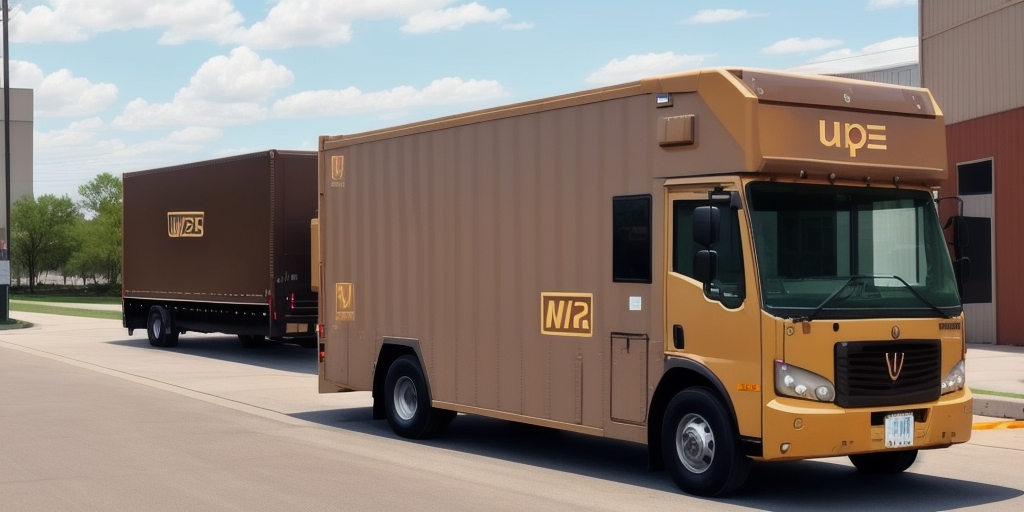Understanding the Costs of UPS Shipping
UPS is one of the most reliable and efficient shipping carriers globally, offering a comprehensive range of services tailored to diverse business needs. However, the cost of UPS shipping can fluctuate based on various factors such as package size, weight, destination, and the chosen shipping service. It is essential for businesses to accurately calculate, understand, and optimize UPS shipping costs to maintain profitability and operational efficiency. In this article, we delve into the intricacies of UPS shipping and provide actionable strategies to optimize associated costs.
Calculating UPS Shipping Costs
Using the UPS Online Shipping Calculator
The primary tool for calculating UPS shipping costs is the UPS online shipping calculator. This tool considers several factors, including package weight, dimensions, destination, and the selected shipping service. By inputting accurate package details, businesses can obtain precise shipping estimates.
Considering Package Type and Dimensions
UPS offers various packaging options such as envelopes, boxes, and tubes, each with its pricing structure. Selecting the appropriate packaging not only ensures the safety of the shipment but also helps in minimizing costs. Oversized or excessively heavy packages can lead to higher shipping fees, so it's crucial to choose the right size and weight for your products.
Selecting the Right Shipping Service
UPS provides multiple shipping services, including Ground, Air, and International options. Each service comes with its own pricing and delivery timelines. For instance, expedited services like UPS Worldwide Express offer faster delivery at a higher cost compared to standard Ground shipping.
Factors Influencing UPS Shipping Rates
Distance and Destination
The distance between the origin and destination significantly impacts shipping costs. Longer distances typically result in higher costs due to increased fuel consumption and time. Additionally, international shipments may incur customs fees and tariffs, further affecting the overall cost.
Package Weight and Dimensions
Heavier and larger packages require more resources to transport, leading to higher shipping fees. UPS uses dimensional weight pricing, which considers both the size and weight of the package to determine the shipping cost. Optimizing package size and weight can lead to substantial savings.
Delivery Timeframe
Faster delivery options, such as next-day or two-day services, are more expensive than standard delivery methods. Businesses must balance the need for speed with budget constraints to choose the most cost-effective shipping option.
Customs Regulations for International Shipping
Each country has its own customs regulations and duties, which can add to the shipping cost and cause delays. It's essential to research and comply with the destination country's import regulations to avoid unexpected fees and ensure smooth delivery.
Strategies to Reduce UPS Shipping Expenses
Negotiating with UPS
Businesses that ship regularly can negotiate better rates with UPS. By conducting a shipping analysis to identify key areas for improvement, companies can approach UPS with data-driven proposals for discounts. Long-term contracts or high shipping volumes often qualify for reduced rates.
Optimizing Packaging
Using the most efficient packaging can significantly reduce shipping costs. Selecting the appropriate size and weight for packages minimizes dimensional weight charges and avoids overpaying for unnecessary space. Consider using lightweight packaging materials and eliminating excess packaging where possible.
Consolidating Shipments
Consolidating multiple shipments into a single larger package can result in bulk shipping discounts and lower per-unit costs. This approach reduces the number of shipments and can lead to substantial savings, especially for businesses with high shipping volumes.
Leveraging UPS Online Tools
UPS offers various online tools such as the Shipping Calculator and Address Validation. Utilizing these tools helps streamline the shipping process, prevent errors, and identify cost-saving opportunities.
Comparing UPS with Other Shipping Carriers
Cost Comparison
Comparing UPS shipping costs with other carriers like FedEx, DHL, and USPS can reveal potential savings. Each carrier has different pricing structures, so evaluating rates for similar services across carriers can help identify the most economical option for your business.
Service Offerings
Beyond cost, it's important to consider the additional services provided by each carrier. Features such as package tracking, insurance options, and customs clearance support can add value and enhance the overall shipping experience.
Reliability and Customer Service
Reliability and quality of customer service are crucial factors. A slightly higher shipping cost may be justified if a carrier offers superior delivery reliability and responsive customer support, reducing the risk of lost or delayed shipments.
Overview of UPS Shipping Services
Domestic Shipping Services
- UPS Ground: Cost-effective ground shipping with reliable delivery times.
- UPS 3 Day Select: Guarantees delivery within three business days.
- UPS 2nd Day Air: Ensures package delivery within two business days.
- UPS Next Day Air: Provides next business day delivery for urgent shipments.
International Shipping Services
- UPS Worldwide Express: High-speed international delivery with door-to-door service.
- UPS Worldwide Saver: Faster international shipping with guaranteed delivery times.
- UPS Worldwide Expedited: Economical option for international shipments with reliable delivery.
Specialized Services
- UPS Freight: Suitable for large, heavy, or bulky shipments requiring freight services.
- UPS Supply Chain Solutions: Comprehensive supply chain management services.
Managing and Tracking UPS Shipping Expenses
Utilizing UPS Tracking Tools
Effective management of shipping expenses begins with robust tracking. Tools like UPS Tracking and UPS My Choice allow businesses to monitor the status of their shipments in real-time, ensuring timely deliveries and reducing the risk of lost packages.
Expense Tracking and Analysis
Maintaining detailed records of shipping expenses enables businesses to identify spending patterns and areas for cost reduction. Tools like UPS Shipping Assistance Manager can help organize and analyze shipping data to provide insights for optimizing costs.
Implementing Shipping Software
Integrating shipping software with UPS systems can automate and streamline the shipping process. Solutions like shipping software can reduce manual errors, enhance efficiency, and provide valuable data for managing shipping expenses effectively.
Common Mistakes to Avoid When Estimating UPS Shipping Costs
Ignoring Additional Fees
Many businesses overlook additional fees such as fuel surcharges, taxes, and customs duties, especially for international shipments. These fees can significantly inflate shipping costs if not accounted for in the initial estimate.
Using Inappropriate Packaging
Choosing the wrong packaging can lead to increased shipping costs due to added weight or dimensional weight charges. It's essential to use packaging that fits the product well, minimizing excess space and weight.
Inaccurate Weight and Dimension Measurements
Incorrectly measuring the weight and dimensions of packages can result in unexpected charges and delays. Always use reliable scales and measuring tools to ensure accuracy when preparing shipments.
Not Leveraging UPS Discounts
Failing to take advantage of available discounts or negotiated rates can lead to higher shipping expenses. Ensure that your business qualifies for any applicable discounts and actively pursue rate negotiations with UPS.
Conclusion
Understanding and optimizing the costs of UPS shipping is vital for maintaining a profitable and efficient business operation. By accurately calculating shipping costs, considering factors that influence rates, and implementing strategic measures to reduce expenses, businesses can significantly enhance their shipping efficiency. Additionally, leveraging UPS's diverse range of services, tracking tools, and negotiating better rates can provide substantial savings and improve overall shipping performance. Adopting these best practices ensures that your business remains competitive and responsive to its shipping needs.








